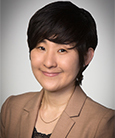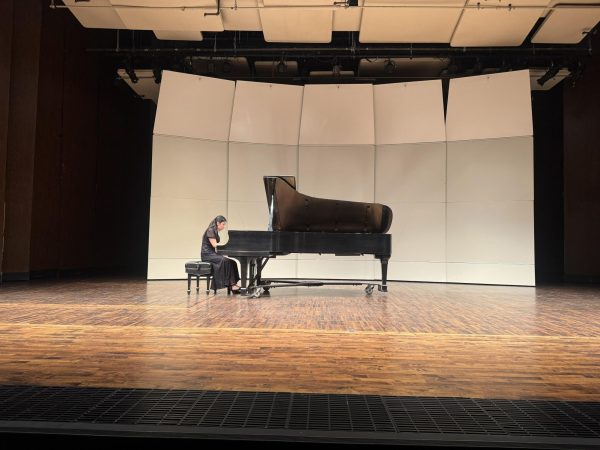Professor joins GSA Task Force to promote diversity in scientific research

Dr. Mi Hye Song (pictured here) was invited to serve on the GSA Awards Audit Task Force.
Dr. Mi Hye Song, an Associate Professor of Biological Sciences at Oakland University recently received an invitation from Genetics Society of America (GSA) to serve on the GSA Awards Audit Task Force.
Founded in 1931, GSA is a professional membership organization for scientists, educators and researchers in the field of genetics. It serves as a source of information to support the professional development of its members throughout their careers and to foster a diverse and inclusive international community of scientists.
According to Dr. Swathi Arur, Chair of the Awards Committee for GSA and associate professor at the University of Texas MD Anderson Cancer Center, the Task Force serves to “propose changes to current awards slate.”
This Task Force consists of ten other faculty members from other universities and colleges all across the country. They met three times virtually via zoom in February and March 2022. All the suggestions by this Task Force were forwarded to the GSA Board Meeting in May 2022. Later, the GSA will continue collecting feedback from the larger GSA community through an open suggestion box and a series of more specific focus groups during these sessions.
In the Awards Audit Task Force, all the members carefully reviewed the Society’s awards portfolio to improve diversity among awardees, clarify criteria for each award and identify any gaps in the program where new awards could be proposed.
The awards presented by GSA are the followings:
- DeLill Nasser Award for Professional Development in Genetics
- Early Career Poster Awards
- GSA Undergraduate Travel Awards
- James F. Crow Early Career Researcher Award
- Presidential Membership Initiative
- Victoria Finnerty Undergraduate Travel Awards
- Edward Novitski Prize
- Elizabeth W. Jones Award for Excellence in Education
- Genetics Society of America Medal
- George W. Beadle Award
- Rosalind Franklin Young Investigator Award
- Thomas Hunt Morgan Medal
These awards acknowledge achievement in a range of areas relevant to genetics practice, such as inventiveness, education, service, accomplishment and commitment to the profession.
According to Dr. Song, researchers at Oakland University – R2 institute in Carnegie Classification –face challenges due to limited research resources compared to those at R1 institutes.
“I was the only advocate representing the R2 institute in these Task Force meetings,” she said. “I felt responsible to speak up for the challenges we [researchers from R2 institutes] face in the R2 institutes like OU. So, I wanted to bring the GSA community’s attention to the other side of diversity-challenges in terms of research environments.”
According to Dr. Song, there is a lack of diversity across R1 and R2 institutes in the field, including the research environment and other challenges at R2 institutes. In hopes to create a more fair and equitable condition in the research field, she proposed to create an R2-focused research award during a committee meeting.
“Although there won’t be an imminent resolution to address broad diversity issues in the GSA Awards system, if more and more people engage in promoting diversity, inclusion, and equity in scientific research, more awareness will be raised,” she said.




